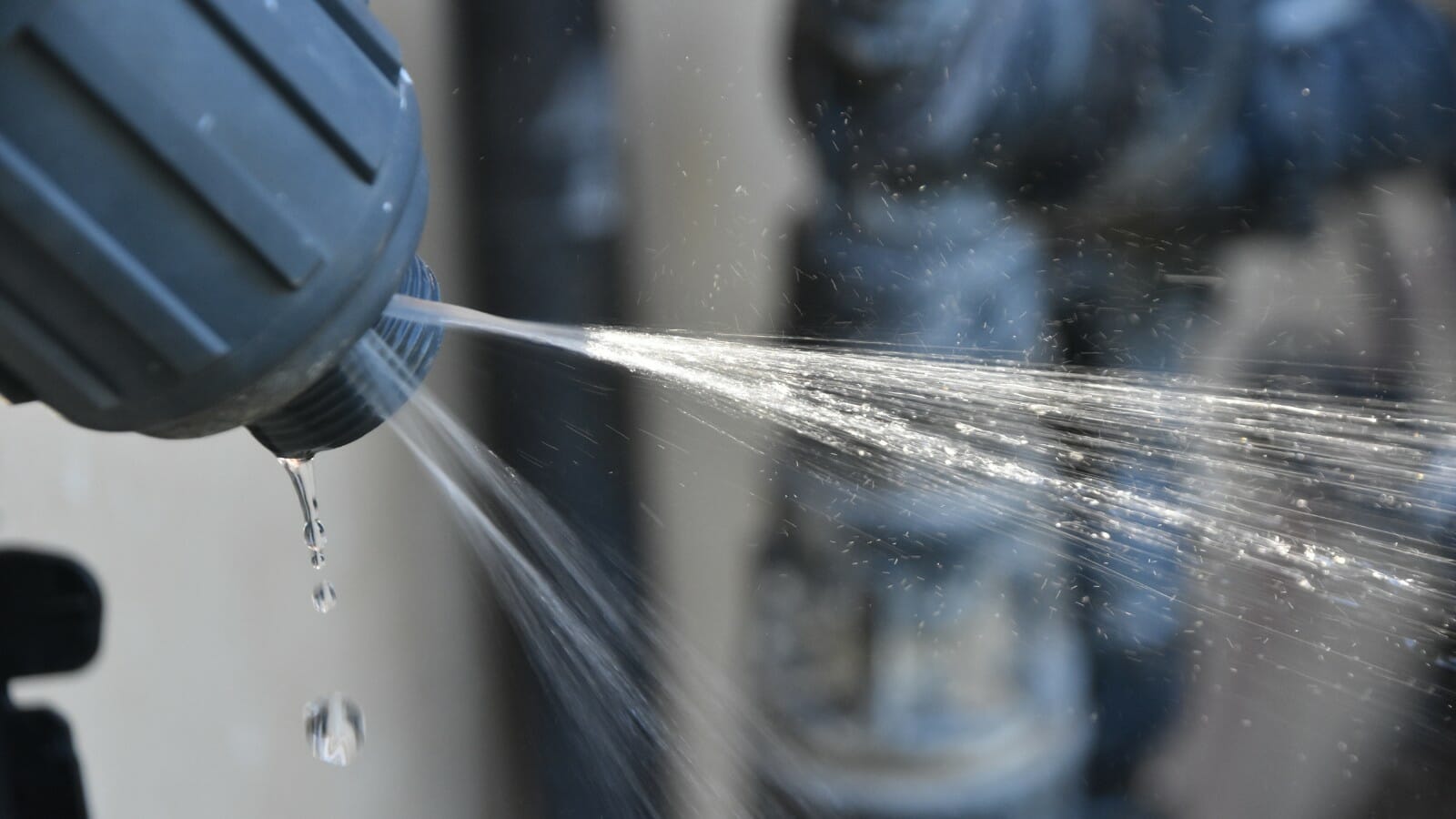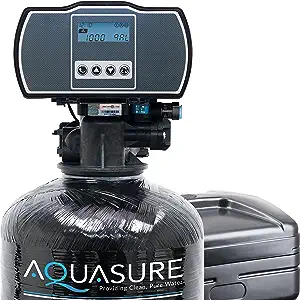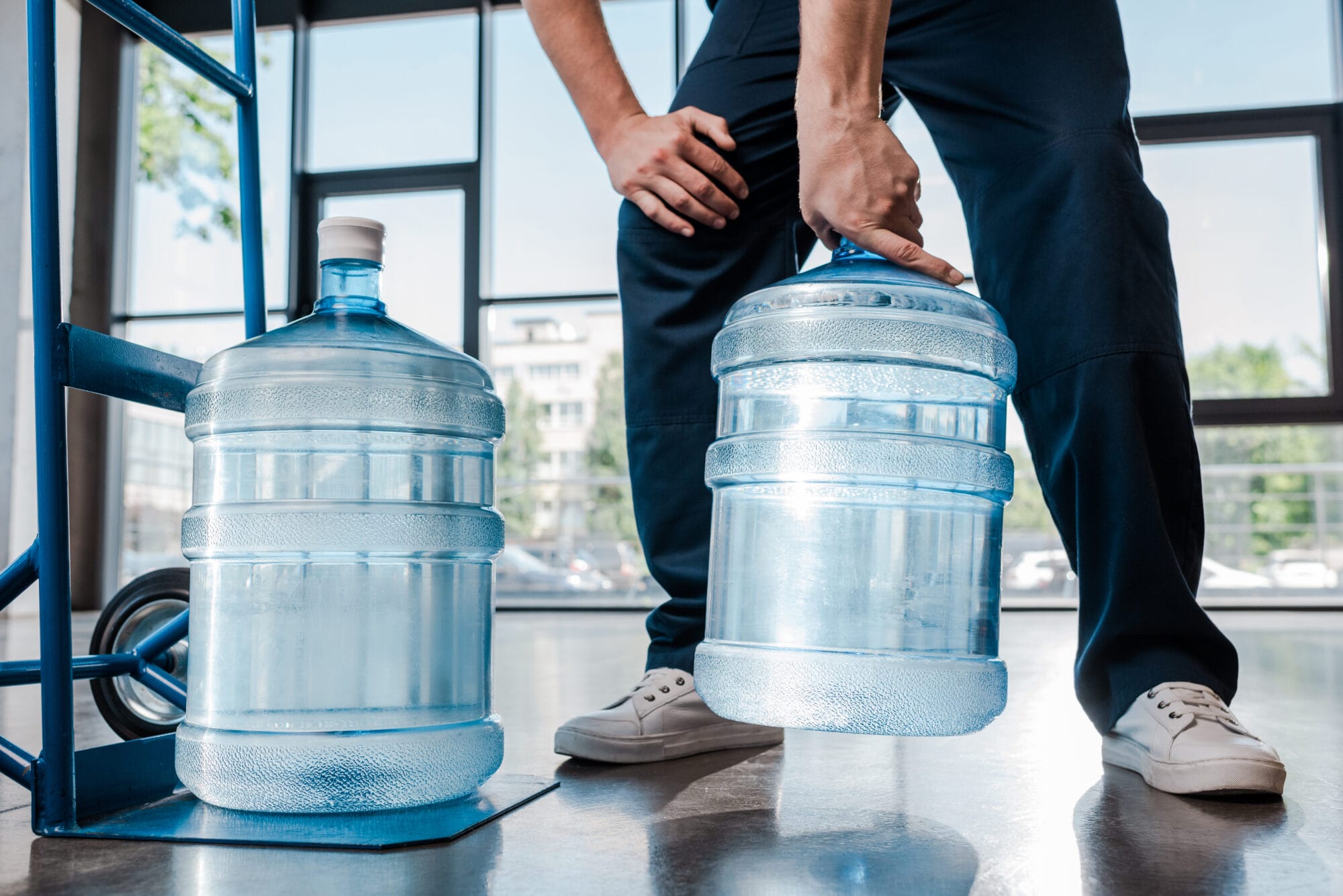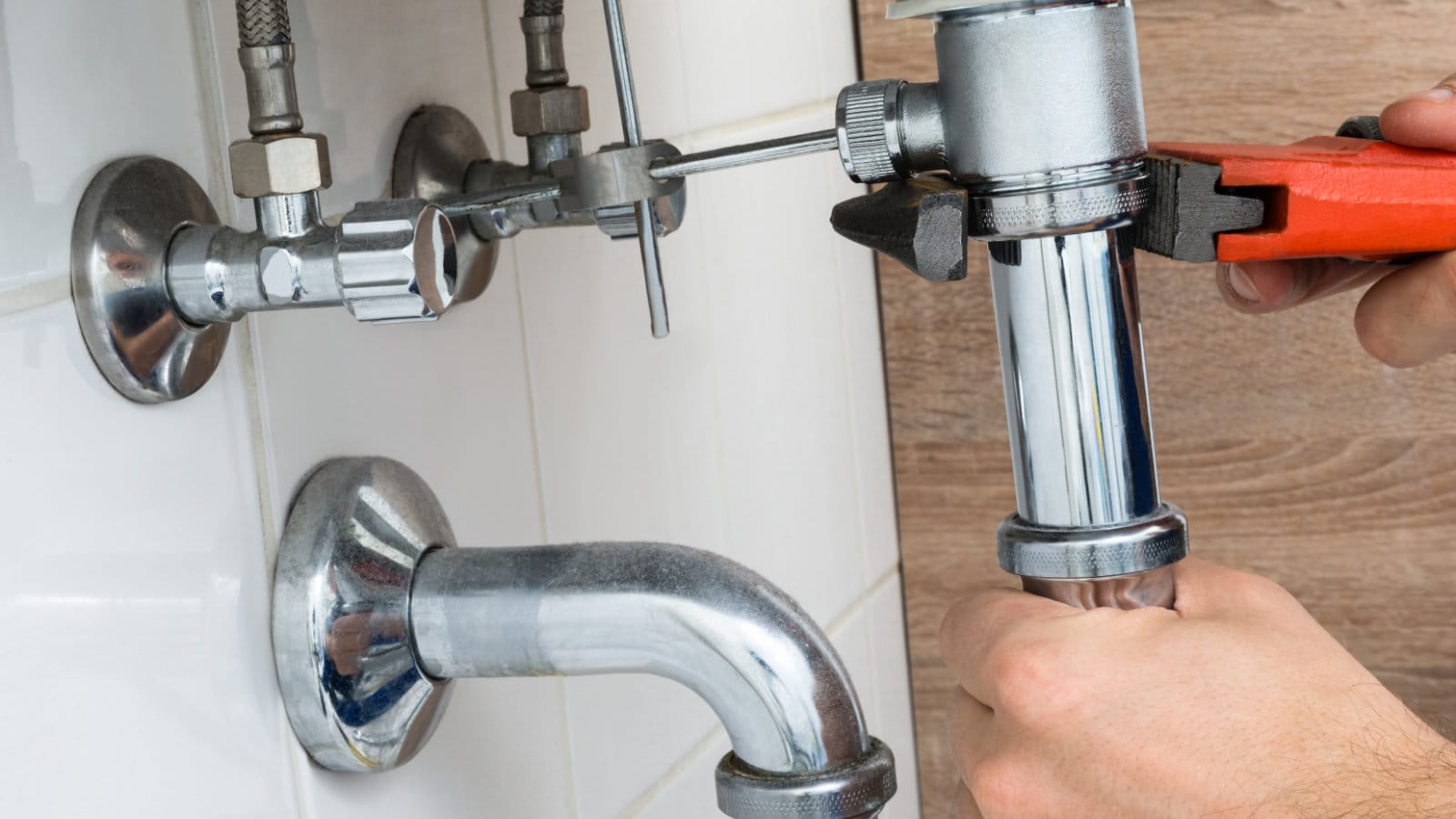You’ve noticed excessive moisture, a wet spot, or a puddle. Upon closer inspection, you realize it’s your water heater leaking. No doubt, you have questions like what’s causing it, how to fix it, and whether you need to call a professional.
Water heaters provide hot water for showers, dishwashing, laundry, and more. Unfortunately, water heaters are prone to leaking, which can be a huge problem for homeowners. A leak can cause extensive water damage to your home and personal property. And repairs or a new unit can also be expensive. The national average for a water heater replacement costs about $1,217, depending on the size and type of water heater.
This article will provide you with the information you need to know about water heater leaks, including how to identify the source of the leak, what to do if you find a leak, and preventive measures to avoid your hot water heater leaking in the first place.
With this knowledge and our easy solutions, you can keep your water heater in optimal condition and avert costly damage associated with leaks.
What are the different types of water heater leaks?
Water heater leaks can occur in different areas of the water heater, ranging from small drips to more extensive flooding. Understanding the different types of water heater leaks can help you address the issue immediately.
Tank Leaks
Water heaters last 6 to 12 years, depending on the type and model. On anything older, its parts, such as the anode rod, have likely worn out, and the tank has become corroded, rusted, or has a sediment buildup, leading to a leak. Unfortunately, at this point, you’ll need to replace the water heater as soon as possible.
Drain Valve Leaks
The drain valve is located at the bottom of the water heater. During maintenance, the valve opens to flush the tank. If the valve becomes loose, damaged, or corroded, it can cause a leak. Check the valve’s connection. If it isn’t watertight, replace it.
Temperature and Pressure Relief Valve Leaks
The temperature and pressure relief valve, known as the T&P valve, works to release excess pressure or heat. If the valve is faulty or fails, the pressure becomes too much and causes the water to overflow. Replace the valve immediately.
Connections Leaks
The pipes and fittings that connect the water heater to the plumbing can loosen or become corroded or damaged over time. Inspect the inlet and outlet connections regularly and replace any damaged parts.
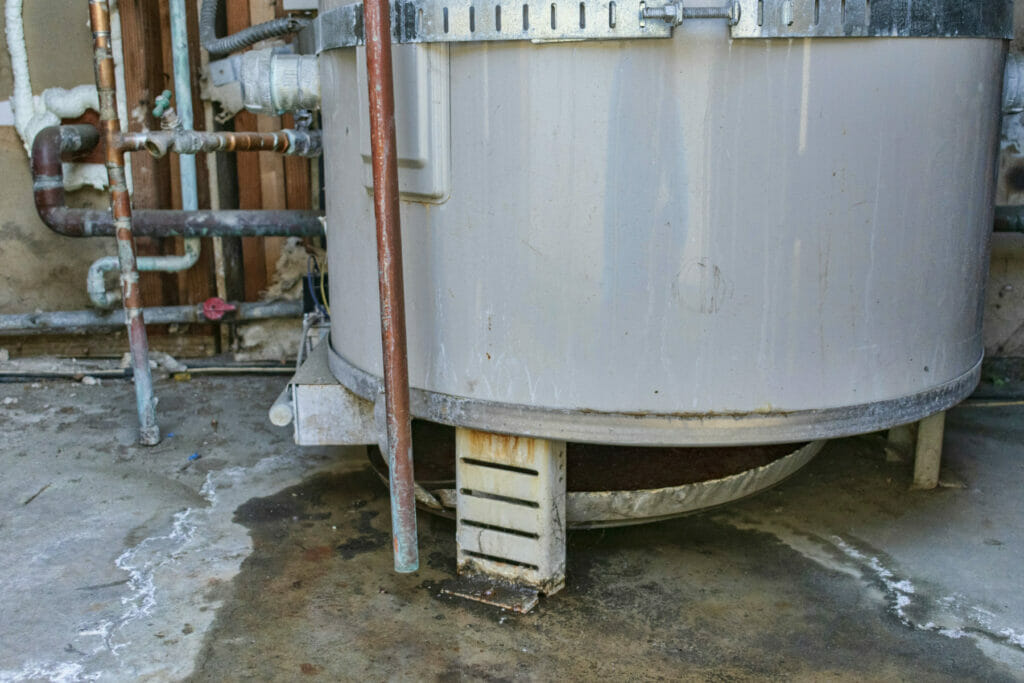
How to Identify Water Heater Leaks
It can be difficult to determine the exact source of the leak. Know what signs to look for and how to detect the leak. If you cannot identify the leak’s source, contact a professional plumber to inspect the water heater and repair or replace any faulty parts.
How to Check for Signs of a Leak
If you’re not sure if the cause of the leak is coming from your water heater, inspect it for the following signs.
- Check for visible signs of damage to the tank or other water heater parts, such as corrosion, rust, discoloration, or other physical damage.
- If you can’t see any damage, listen for any dripping, gurgling, or bubbling sounds, which could indicate that water is escaping from the water heater.
- Finally, moisture around the tank, puddles, or wet patches on the floor or walls near the water heater is a sure indication your water heater is leaking.
Tips for Locating the Source of the Leak
Now that you’ve determined you have a leak, next locate its source.
- Closely examine the water inlet and outlet connections to ensure they’re secure and free from corrosion or damage that would cause a leak.
- Test the pressure relief valve by opening it slightly, but don’t force it. If it’s stuck or water continues to leak after closing it, it’s faulty and needs to be replaced.
- Check the drain valve to make sure it’s securely closed.
What causes water heater leaks?
Water heater leaks can happen at any time and for various reasons. Knowing what causes a leak can help you determine the type of repair or replacement.
- Age of the tank
- Wear and tear on the tank
- Sediment buildup
- Corrosion inside the tank
- Loose connections on pipes, valves, and fittings
- High water pressure
- Temperature fluctuations
- Faulty or damaged anode rod
- Improper installation
- Insufficient maintenance
How to Resolve Water Heater Leaks
The first step in resolving the problem is to ask, “Is my hot water heater leaking from the bottom or top?”
What do you do if your water heater is leaking from the bottom?
If you notice your hot water heater leaking from the bottom, begin by checking the drain valve for a loose connection. Repair it or replace it. Next inspect the tank for damage such a cracks or pinholes, necessitating a replacement.
What do you do if your water heater is leaking from the top?
If your water heater is leaking from the top, try tightening the inlet and outlet connections or replacing a faulty temperature and pressure relief valve (T&P valve).
What are options for repairing the leak?
Sometimes all it takes is a simple repair, such as tightening connections or replacing a faulty valve, to resolve the issue and stop the leak.
You could complete the repair yourself if you feel confident in your knowledge and skills. Always take safety precautions including keeping the area well-ventilated and wearing protective clothing and gloves. Otherwise, it’s best to call a professional.
Should you repair or replace your water heater?
Deciding whether to repair or replace your water heater can save you time, money, and energy. Generally, repairs cost less and can be completed quicker and easier. However, there are certain circumstances where replacing your water heater is your best option.
Consider the following factors when deciding whether to repair or replace your water heater.
- Assess the condition and age of your water heater. It may be best to replace it if it’s over ten years old, not functioning correctly, or not energy efficient.
- Decide if a repair is possible, such as replacing parts or securing loose connections.
- Consider the cost of the repair or replacement versus the cost of a new water heater.
When should you call a professional?
Ignoring a leak can lead to further damage, increased water bills, and risk of damage to your home. If you are unsure how to address the leak, it is best to contact a professional plumber.
Tips for Preventing Water Heater Leaks
To help prevent a potentially disastrous water heater leak, there are several steps you can take to maintain a healthy water heater. By monitoring your water heater for signs of wear and tear or other issues, you can help avoid leaks in the future.
Maintenance tips for Tank Water Heaters
- Check the pressure release valve
- Flush the tank regularly
- Check the anode rod
- Clean the air intake filter
- Insulate the pipes and the heater
- Yearly professional inspections
Maintenance tips for Tankless Water Heaters
- Flush the system
- Clean the water and air filters
- Install a water softener
- Get professional maintenance
Test the Pressure Release Valve Regularly
Also known as the temperature and pressure relief valve (T&P), this valve releases pressure if it builds up too high. You can get it tested annually by a qualified professional. Or carefully test it yourself by lifting it for a few seconds. Water or steam should escape and shut off upon closing it. If the valve doesn’t open or continues to leak when closed, it should be replaced immediately.
Check the Anode Rod
This metal rod inside the water heater tank works to attract corrosive elements onto itself and away from the tank, which prevents and slows the tank from rusting. The anode rod should be checked annually to ensure it still functions properly. If it’s corroded, it must be replaced or your tank will become susceptible to corrosion.
Flush the Water Heater Tank or the System
You should flush your water heater tank or the system once a year to remove sediment and other buildups and to keep your tank in good condition, working efficiently, and help prevent leaks.
Insulate the Pipes and the Tank
Insulating the water heater tank and the unit’s pipes will help keep the water in the tank hot for longer, which can help reduce the chances of a leak.
Final Thoughts on Water Heater Leaks
Understanding the different types of water heater leaks and how to address them can help prevent costly repairs and keep your home safe. Regular maintenance can prevent water heater leaks and the potential water damage they can cause. If you have any concerns about your water heater, it’s always best to call a qualified professional to inspect it.
Call a Professional for Your Water Heater Repair or Maintenance
For high-quality repair or maintenance services for your water heater, go with a local, reliable, honest company with over 20 years of experience in the Dallas and Rockwall, TX, area. Intown Plumbing provides knowledgeable experts for the best service. Contact us today to get professional help with your water heater!
